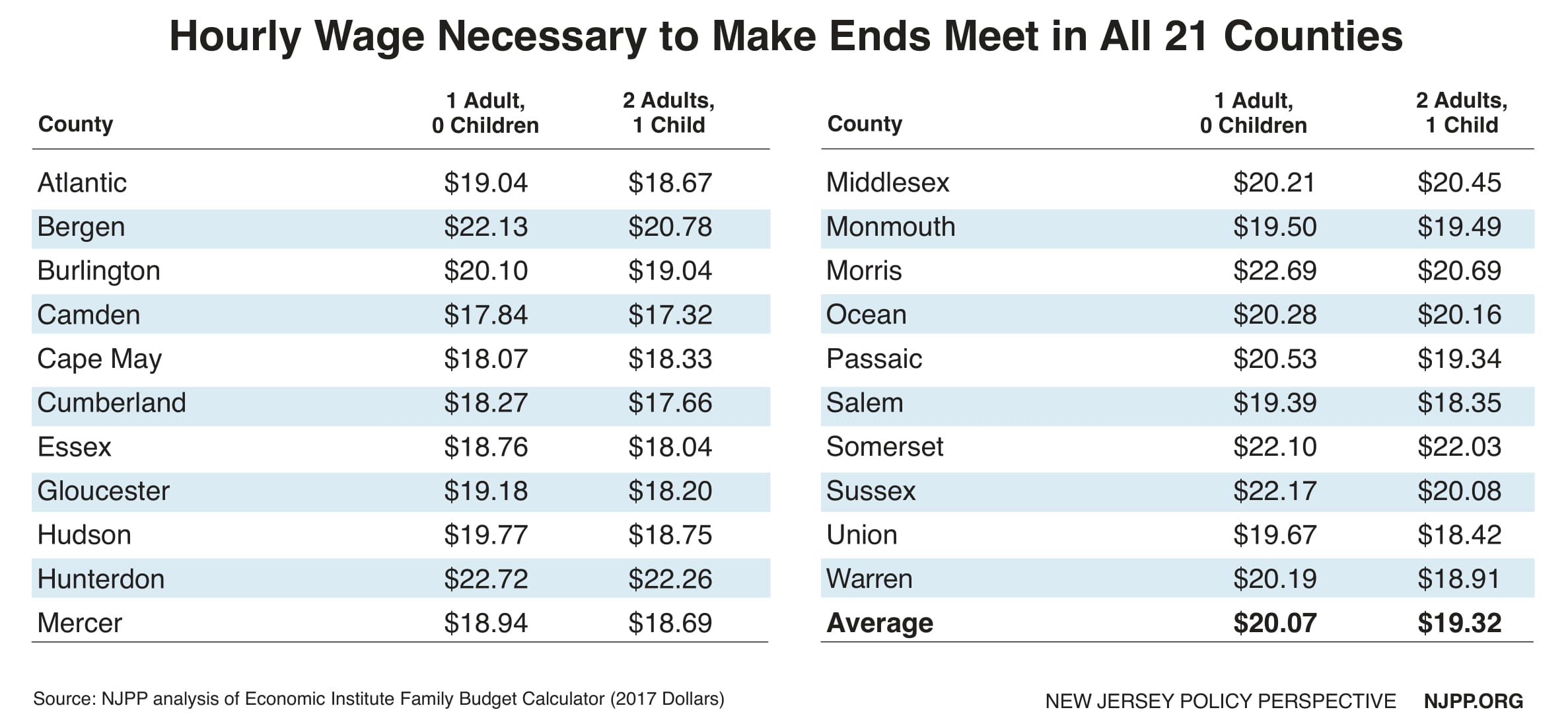New Jersey’s minimum wage will increase on January 1, 2019 from $8.60 from $8.85, according to an announcement by the NJ Department of Labor and Workforce Development. While this is a welcomed change, representing a possible increase of $520 in annual earnings for full-time workers making minimum wage, the bump isn’t nearly enough to help New Jersey’s low-wage workforce better afford their needs and provide for their families.
When New Jersey increased the minimum wage in 2013 to $8.25, it tied future increases to inflation, indexing the wage floor to the Consumer Price Index for Urban Wage Earners and Clerical Workers (CPI-W). This has resulted in minor raises in most years since: 13 cents in 2015, 0 cents in 2016, 6 cents in 2017, and 16 cents in 2018. The increase of 25 cents in January 2019 will be the largest since 2013.
It’s important to remember that both houses of the state legislature passed a $15 minimum wage bill in 2016 that included all workers. Unfortunately, the bill was vetoed by then-Governor Christie. Had it been signed into law in 2016, the minimum wage would be increasing to $12.50 on January 1, 2019 – which equates to $26,000 annually for a full-time worker.
A minimum wage of $8.85 – $18,408 a year – is woefully insufficient for someone working full-time who never gets sick and doesn’t take any vacation time. This isn’t enough for workers to make ends meet and contributes to the sluggish nature of New Jersey’s economy. When so few workers are able to participate in the economy, businesses miss out on would-be customers.
This is why a $15 minimum wage is necessary for all workers in New Jersey, including tipped, youth, farm and seasonal workers. The change would inject $3.9 billion into the state’s economy and help over 1 million workers better afford their needs. Today, there is no region of the state where a single worker with no children can afford basic necessities while making less than $15 per hour. The costs of transportation, food and rent are simply too high for a minimum wage worker to afford without suffering in poverty.


